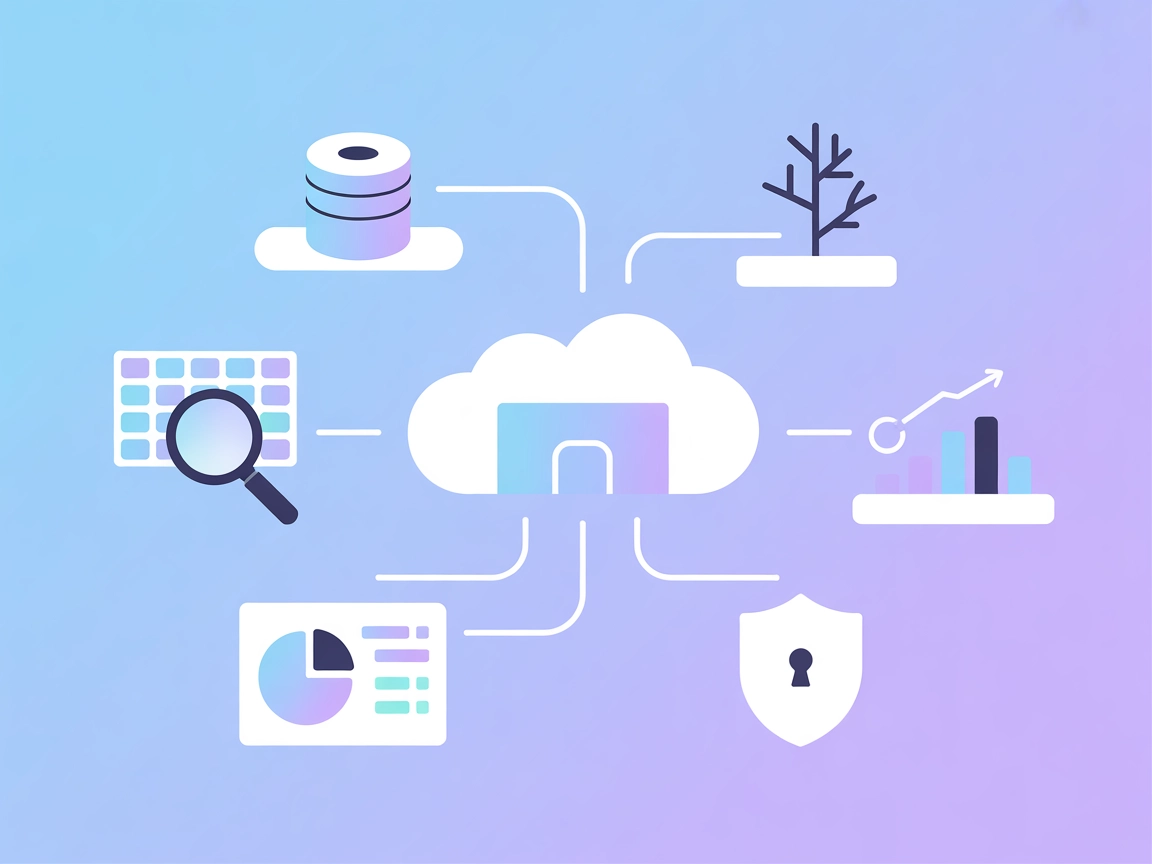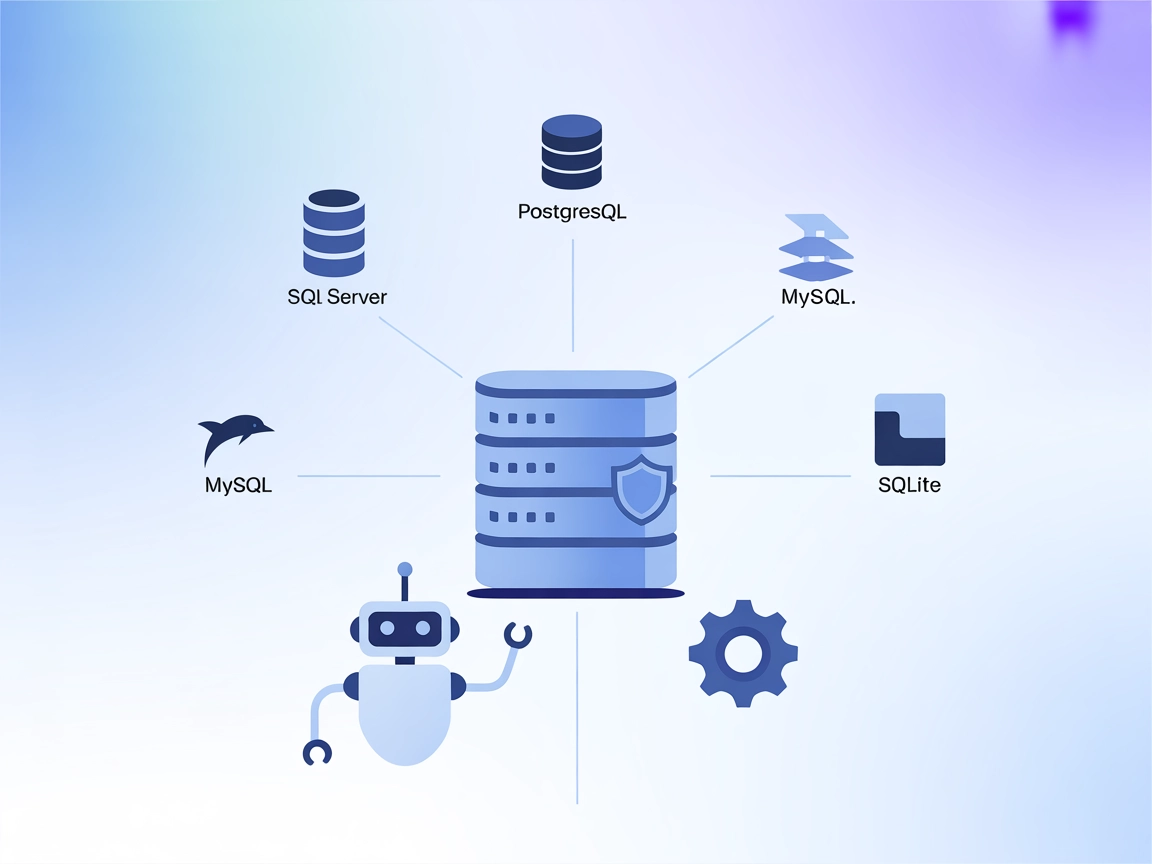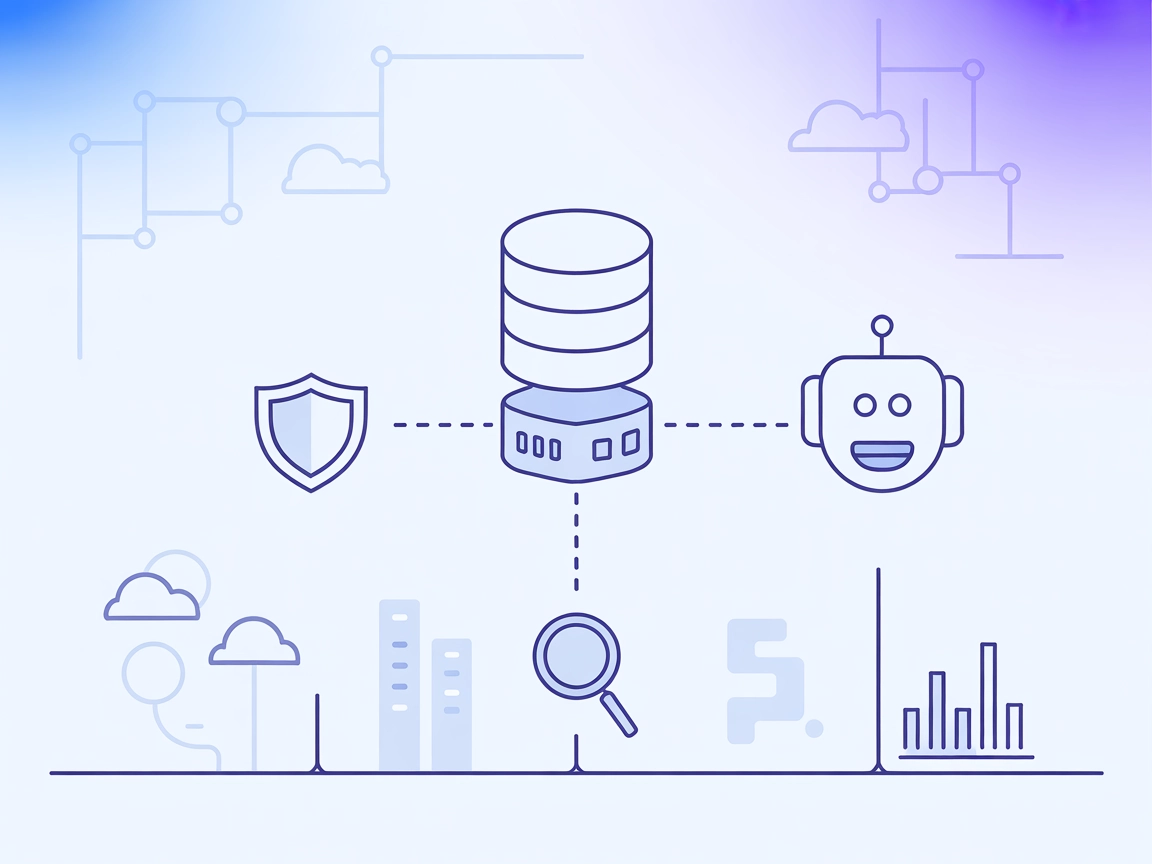Apache IoTDB MCP Server
Integrate IoTDB with your AI tools and workflows using the IoTDB MCP Server for powerful, real-time time-series data analytics, schema exploration, and automated business intelligence.

What does “IoTDB” MCP Server do?
The Apache IoTDB MCP Server is an implementation of the Model Context Protocol (MCP) designed to provide seamless database interaction and business intelligence capabilities through IoTDB, a time-series database. By acting as a bridge, it enables AI assistants and clients to execute SQL queries against IoTDB, supporting data analysis and management tasks directly through natural language or programmatic LLM-driven workflows. Developers can use the MCP server to perform database queries, view schema information, and retrieve metadata, enhancing their ability to integrate IoTDB into AI-powered development environments for tasks such as querying time-series data and managing database schemas.
List of Prompts
The server doesn’t provide any prompts.
List of Resources
The server doesn’t expose any resources.
List of Tools
The IoTDB MCP Server offers different tools depending on the selected SQL dialect (“tree” or “table”).
Tree Model
metadata_query- Executes SHOW/COUNT queries to retrieve metadata from the IoTDB database.
- Input:
query_sql(string) – The SHOW/COUNT SQL query to execute. - Output: Query results as an array of objects.
select_query- Executes SELECT queries to read time-series data from the database.
- Input:
query_sql(string) – The SELECT SQL query to execute. - Output: Query results as an array of objects.
Table Model
Query Tools
read_query- Executes SELECT queries to read data from the database.
- Input:
query(string) – The SELECT SQL query to execute. - Output: Query results as an array of objects.
Schema Tools
list_tables- Retrieves a list of all tables in the database.
- Input: None.
- Output: Array of table names.
describe-table- Provides schema information for a specific table.
- Input:
table_name(string) – Name of the table to describe. - Output: Array of column definitions with names and types.
Use Cases of this MCP Server
- Time-Series Database Management
Easily query, browse, and manage large-scale time-series data stored in IoTDB directly from AI assistants or LLM-powered developer tools. - Schema Exploration
Retrieve and explore database schema, get lists of tables, and view table descriptions to understand and document database structure. - Business Intelligence Integration
Integrate IoTDB data into BI workflows with natural language querying and schema analysis, facilitating analytics and reporting. - Automated Data Analytics
Use the MCP server as a backend for automated data analysis pipelines, where LLMs generate and run SQL queries based on user intent. - Metadata Inspection
Run SHOW/COUNT queries to view database metadata, helping with monitoring, auditing, and database optimization tasks.
How to set it up
Windsurf
- Ensure you have Python installed and the
uvpackage manager. - Install or clone the IoTDB MCP Server repository.
- Edit the Windsurf configuration file to add the IoTDB MCP Server.
- Use the following JSON snippet in your config:
{ "mcpServers": { "iotdb": { "command": "uv", "args": [ "--directory", "YOUR_REPO_PATH/src/iotdb_mcp_server", "run", "server.py" ], "env": { "IOTDB_HOST": "127.0.0.1", "IOTDB_PORT": "6667", "IOTDB_USER": "root", "IOTDB_PASSWORD": "root", "IOTDB_DATABASE": "test", "IOTDB_SQL_DIALECT": "table" } } } } - Save the configuration and restart Windsurf.
- Verify the server is running and connected.
Claude
- Install Python,
uv, and IoTDB as prerequisites. - Clone the IoTDB MCP Server repository.
- On MacOS, edit
~/Library/Application Support/Claude/claude_desktop_config.json; on Windows, edit%APPDATA%/Claude/claude_desktop_config.json. - Add the MCP server entry:
{ "mcpServers": { "iotdb": { "command": "uv", "args": [ "--directory", "YOUR_REPO_PATH/src/iotdb_mcp_server", "run", "server.py" ], "env": { "IOTDB_HOST": "127.0.0.1", "IOTDB_PORT": "6667", "IOTDB_USER": "root", "IOTDB_PASSWORD": "root", "IOTDB_DATABASE": "test", "IOTDB_SQL_DIALECT": "table" } } } } - Save changes and restart Claude Desktop.
- Confirm the server is available in Claude.
Cursor
- Make sure Python,
uv, and IoTDB are installed. - Clone the MCP server repository.
- Edit Cursor’s configuration to include the MCP server.
- Use the following JSON:
{ "mcpServers": { "iotdb": { "command": "uv", "args": [ "--directory", "YOUR_REPO_PATH/src/iotdb_mcp_server", "run", "server.py" ], "env": { "IOTDB_HOST": "127.0.0.1", "IOTDB_PORT": "6667", "IOTDB_USER": "root", "IOTDB_PASSWORD": "root", "IOTDB_DATABASE": "test", "IOTDB_SQL_DIALECT": "table" } } } } - Save the configuration and restart Cursor.
- Ensure the MCP server is active and responsive.
Cline
- Install necessary dependencies: Python,
uv, and IoTDB. - Clone the Apache IoTDB MCP Server.
- Open Cline’s configuration file.
- Add the MCP server info as shown:
{ "mcpServers": { "iotdb": { "command": "uv", "args": [ "--directory", "YOUR_REPO_PATH/src/iotdb_mcp_server", "run", "server.py" ], "env": { "IOTDB_HOST": "127.0.0.1", "IOTDB_PORT": "6667", "IOTDB_USER": "root", "IOTDB_PASSWORD": "root", "IOTDB_DATABASE": "test", "IOTDB_SQL_DIALECT": "table" } } } } - Save and restart Cline.
- Check the MCP server integration.
Securing API Keys
API credentials such as IOTDB_USER and IOTDB_PASSWORD are managed via the env field in the configuration. Use environment variables to avoid hard-coding sensitive data. Example:
"env": {
"IOTDB_HOST": "127.0.0.1",
"IOTDB_PORT": "6667",
"IOTDB_USER": "${IOTDB_USER}",
"IOTDB_PASSWORD": "${IOTDB_PASSWORD}",
"IOTDB_DATABASE": "test"
}
And set these environment variables in your system before starting the server.
How to use this MCP inside flows
Using MCP in FlowHunt
To integrate MCP servers into your FlowHunt workflow, start by adding the MCP component to your flow and connecting it to your AI agent:

Click on the MCP component to open the configuration panel. In the system MCP configuration section, insert your MCP server details using this JSON format:
{
"iotdb": {
"transport": "streamable_http",
"url": "https://yourmcpserver.example/pathtothemcp/url"
}
}
Once configured, the AI agent is now able to use this MCP as a tool with access to all its functions and capabilities. Remember to change “iotdb” to whatever the actual name of your MCP server is and replace the URL with your own MCP server URL.
Overview
| Section | Availability | Details/Notes |
|---|---|---|
| Overview | ✅ | |
| List of Prompts | ⛔ | No prompts provided |
| List of Resources | ⛔ | No resources exposed |
| List of Tools | ✅ | See tree/table model tools above |
| Securing API Keys | ✅ | Uses env in config |
| Sampling Support (less important in evaluation) | ⛔ | Not mentioned |
Our opinion
The IoTDB MCP Server is a focused, minimal implementation providing essential database-interaction tools for IoTDB. It lacks advanced MCP features such as prompts, resources, roots, and sampling, but is well-suited for its specific use-case in time-series database access. Setup is well-documented for Claude Desktop; other integrations are inferred but standard. Overall, this is a niche but solid MCP server for database-centric workflows.
MCP Score
| Has a LICENSE | ✅ (Apache-2.0) |
|---|---|
| Has at least one tool | ✅ |
| Number of Forks | 10 |
| Number of Stars | 24 |
Frequently asked questions
- What is the IoTDB MCP Server?
The IoTDB MCP Server is a Model Context Protocol implementation that acts as a bridge between AI tools and the Apache IoTDB time-series database, enabling natural language or programmatic SQL queries, schema exploration, and metadata access within AI workflows.
- Which tools does the IoTDB MCP Server provide?
It provides tools for SELECT queries, metadata queries, listing tables, and describing table schemas—covering both tree and table SQL dialects. These enable reading time-series data, examining database structure, and retrieving metadata.
- Which use cases are best suited for this MCP server?
Ideal use cases include time-series database management, schema exploration, business intelligence integration, automated data analytics, and metadata inspection—all powered by AI assistants or LLM-based developer environments.
- How do I secure my database credentials?
Set sensitive credentials like IOTDB_USER and IOTDB_PASSWORD using environment variables in your MCP server configuration to avoid hard-coding them.
- Does the IoTDB MCP Server support prompts or sampling?
No, the current implementation focuses on essential database interaction tools and does not provide prompts, resources, or sampling features.
Try the IoTDB MCP Server with FlowHunt
Supercharge your time-series analytics and database management in AI workflows by connecting IoTDB through the MCP Server. Experience seamless SQL querying, schema exploration, and metadata insights.



